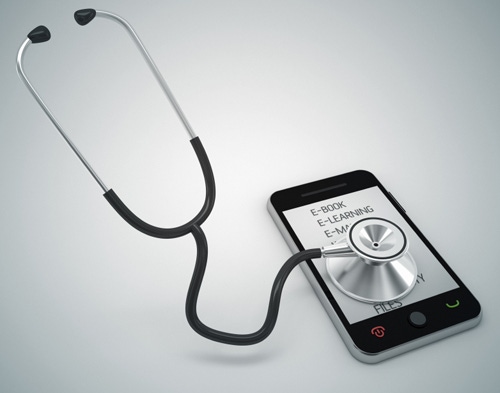Study At Mayo Wields Digital Health To Fight COPD
A NIH study at Mayo Clinic seeks to show that boosting patient engagement through digital health can improve outcomes for COPD patients.
October 30, 2015

Arundhati Parmar
Digital health is gaining steam. Evidence abounds.
Earlier this year, the Centers for Medicare and Medicaid Services acknowledged the power of digital health as a preventive measure that can help pre-diabetic patients from getting the full-blown chronic condition.
And now a study at Mayo Clinic treating chronic obstructive pulmonary disorder (COPD) is wielding a digital platform from Novu to tackle the disease. What is common to both examples: patient engagement. And that is one of the tools through which quality of care can be measured, something that has gained urgency under healthcare reform.
"With the traditional business model that has been in place within health - the primarily sort fee-for-service transaction based model - there wasn’t necessarily an inherent need for quality at all times in that traditional model," says Stephen Hiser, lead associate at consulting firm Booz Allen Hamilton. "We've seen that shift in healthcare reform with more of an emphasis on quality metrics and quality-based care."
That focus on quality combined with patients wanting to take a more active role in their care has brought patient engagement to the fore. The study of Mayo in essence will aim to validate the efficacy of patient engagement, said Tom Wicka, founder and CEO of Novu, a consumer engagement startup whose software platform is being tested.
Minnesota HealthSolutions Corporation, which won the National Institutes of Health grant is working with Novu and Mayo to enrol patients and conduct the study. The goal is to demonstrate that heightened engagement through digital tools can improve efficacy by comparing it with patients who were treated without a digital component.
The study which will enrol 75 patients will evaluate how pulmonary rehabilitiation, which includes daily breathing exercises, can function in a remote setting compared to one in a clinical setting, Wicka pointed out.
Echoing Hiser, Wicka said that as payers reimburse on outcomes and quality, providers and companies are looking to put the patient at the center of the healthcare conversation. The consumer trend in healthcare is also driving a new attitude toward patient engagement.
"There is an awakening of the individual and the awakening of the marketplace to say that the individual does have choices and will have choices," Wicka says.
In the COPD trial that will run for 18 months, Novu expects to be able show evidence that interacting through digital tools with care managers and performing the daily breathing exercises will have a positive effect on respiratory capacity for instance. The patients using the Novu solution receive a daily communication on tablet device that tells them how to complete their breathing exercises as well as have them answer a few questions and provide relevant content such as video. Notably COPD patients using the digital health application on the trial are connected to each other.
"This allows them to share experiences and best practices," Wicka explained.
Once the trial is complete and resutls are available - and Wicka hopes to show a clear correlation between digital health boosting patient engagement and improved outcomes - Novu can approach payers to reimburse these emerging tools in chronic care. Novu can be deployed in a number of different chronic and acute conditions.
"For us, this is a validation of our platform, but the argument to get it reimbursed is a big opportunity in the marketplace and the payer is the right place to start with that."
Hiser with Booz Allen Hamilton believes that there is an increasing awareness of the importance of patient engagement in healthcare than before.
Yet there are certain challenges to patient engagement, an important one being security.
"We need to be making sure that not only the front end infrastructure is secure to interface with folks, but the back end infrastructure is also secure so that HIPAA regulations are not breached, and if there is a breach then to make sure that the most sensitive information is not compromised,"
Both Hiser and Wicka will be part of a panel discussing patient engagement at a two-day conference in Minneapolis hosted by LifeScience Alley and MD&M Minneapolis on Nov.5.
To learn about medical devices trends and the broader industry, attend the LifeScience Alley and MD& Minneapolis conference in Minneapolis, Nov. 4-5 at the Minneapolis Convention Center. |
You May Also Like


